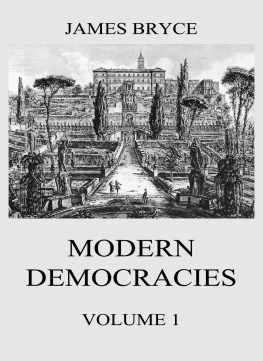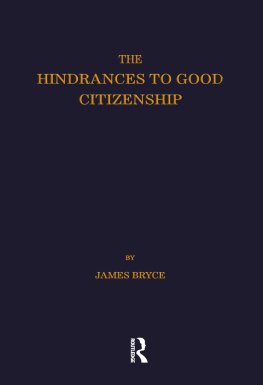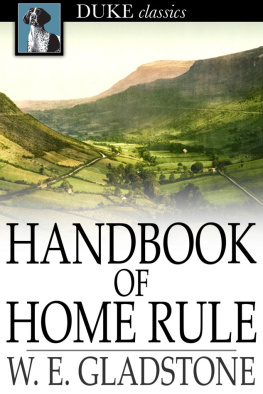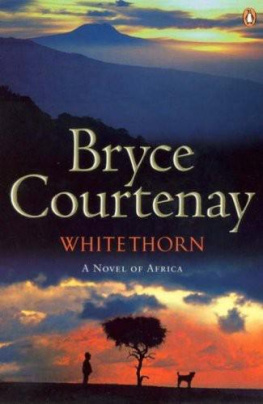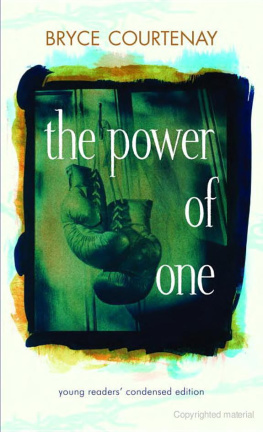PREFACE
Many years ago, at a time when schemes of political reform were being copiously discussed in England, mostly on general principles, but also with references, usually vague and disconnected, to history and to events happening in other countries, it occurred to me that something might be done to provide a solid basis for argument and judgment by examining a certain number of popular governments in their actual working, comparing them with one another, and setting forth the various merits and defects which belonged to each. As I could not find that any such comparative study had been undertaken, I formed the idea of attempting it, and besides visiting Switzerland and other parts of Europe, betook myself to the United States and Canada, to Spanish America and Australia and New Zealand, in search of materials, completing these journeys shortly before the War of 1914 broke out. The undertaking proved longer and more toilsome than had been expected; and frequent interruptions due to the War have delayed the publication of the book until now, when in some countries conditions are no longer what they were when I studied them eight or ten years ago. This fact, however, though it needs to be mentioned, makes less difference than might be supposed, because the conditions that have existed in those countries, and especially in France, the United States, and Australia, from 1914 to 1920 have been so far abnormal that conclusions could not well be drawn from them, and it seems safer to go back to the earlier and more typical days. Neither is it necessary for the purpose here in view to bring the record of events in each country up to date; for it is not current politics but democracy as a form of government that I seek to describe. Events that happened ten years ago may be for this particular purpose just as instructive as if they were happening to-day.
The term Democracy has in recent years been loosely used to denote sometimes a state of society, sometimes a state of mind, sometimes a quality in manners. It has become encrusted with all sorts of associations attractive or repulsive, ethical or poetical, or even religious. But Democracy really means nothing more nor less than the rule of the whole people expressing their sovereign will by their votes. It shows different features in different countries, because the characters and habits of peoples are different; and these features are part of the history of each particular country. But it also shows some features which are everywhere similar, because due to the fact that supreme power rests with the voting multitude. It is of the Form of Government as a Form of Government that is to say, of the features which democracies have in common that this book treats, describing the phenomena as they appear in their daily working to an observer who is living in the midst of them and watching them, as one standing in a great factory sees the play and hears the clang of the machinery all around him. The actual facts are what I wish to describe, and it seems as if nothing could be simpler, for they are all around us. But the facts are obscured to most people by the half-assimilated ideas and sonorous or seductive phrases that fill the air; and few realize exactly what are the realities beneath the phrases. To those persons who, as politicians, or journalists, or otherwise, have been inside politics, the realities of their own country are familiar, and this familiarity enables such experts to get a fair impression of the facts in other countries. But as regards large parts of every public that may be said which the cynical old statesman in Disraeli's novel Contarini Fleming said to his ardent son who wished to get away from words to ideas, Few ideas are correct ones, and what are correct no one can ascertain; but with Words we govern men.
The book is not meant to propound theories. Novelties are not possible in a subject the literature of which began with Plato and Aristotle and has been enriched by thousands of pens since their day. What I desire is, not to impress upon my readers views of my own, but to supply them with facts, and (so far as I can) with explanations of facts on which they can reflect and from which they can draw their own conclusions.
I am not sufficiently enamoured of my own opinions to seek to propagate them, and have sought to repress the pessimism of experience, for it is not really helpful by way of warning to the younger generation, whatever relief its expression may give to the reminiscent mind. The saddest memories of political life are of moments at which one had to stand by when golden opportunities were being lost, to see the wrong thing done when it would have been easy to do the right thing. But this observation was made by a Persian to a Greek at a dinner-party, the night before the battle of Plataea twenty-four centuries ago, and the world has nevertheless made some advances since then.
Though I have written the book chiefly from personal observations made in the countries visited, there are of course many treatises to which I should gladly have referred, were it not that the number to be cited would be so large as to perplex rather than help the reader who is not a specialist, while the specialist would not need them. My greatest difficulty has been that of compression. In order to keep the book within reasonable limits I have had to turn reluctantly away from many seductive by-paths, from history, from forms of political theory, such as those of the conception of the State and the nature of Sovereignty, from constitutional and legal questions, and above all from economic topics and those schemes of social reconstruction which have been coming to the front in nearly every country matters which now excite the keenest interest and are the battleground of current politics. Though frequently compelled to mention such schemes I have abstained from any expressions of opinion, not merely for the sake of avoiding controversy, but because it seems to me, after a long life spent in study and study means unlearning as well as learning to be a student's first duty to retain an open mind upon subjects he has not found time to probe to the bottom. Even when one thinks a view unsound or a scheme unworkable, one must regard all honest efforts to improve this unsatisfactory world with a sympathy which recognizes how many things need to be changed, and how many doctrines once held irrefragable need to be modified in the light of supervenient facts. What we want to-day is a better comprehension by each side in economic controversies of the attitude and arguments of the other. Reconcilements are not always possible, but comprehension and appreciation should be possible.
The absorption of men's minds with ideas and schemes of social reconstruction has diverted attention from those problems of free government which occupied men's minds when the flood-tide of democracy was rising seventy or eighty years ago; and it has sometimes seemed to me in writing this book that it was being addressed rather to the last than to the present generation. That generation buried itself with institutions; this generation is bent rather upon the purposes which institutions may be made to serve. Nevertheless the study of institutions has not lost its importance. Let us think of the difference it would have made to Europe if the countries engaged in the Great War had in 1914 been all of them, as some of them were, oligarchies or autocracies; or if all of them had been, as some were, democracies. Or let us think of what may be the results within the next thirty years of setting up democracies in countries that have heretofore formed part of the Russian and Austro-Hungarian Monarchies; or (to take a still more startling case) of trying the experiment of popular government in India, in China, in Russia, in Egypt, in Persia, in the Philippine Islands. If any of the bold plans of social reconstruction now in the air are attempted in practice they will apply new tests to democratic principles and inevitably modify their working. There is still plenty of room for observation, plenty of facts to be observed and of thinking to be done. The materials are always growing. Every generalization now made is only provisional, and will have to be some day qualified: every book that is written will before long be out of date, except as a record of what were deemed to be salient phenomena at the time when it was written. Each of us who writes describes the progress mankind was making with its experiments in government as he saw them; each hands on the torch to his successor, and the succession is infinite, for the experiments are never completed.

